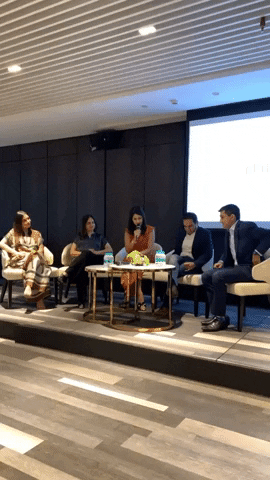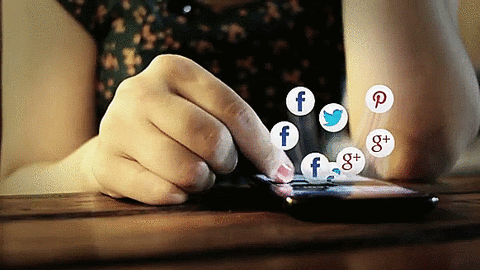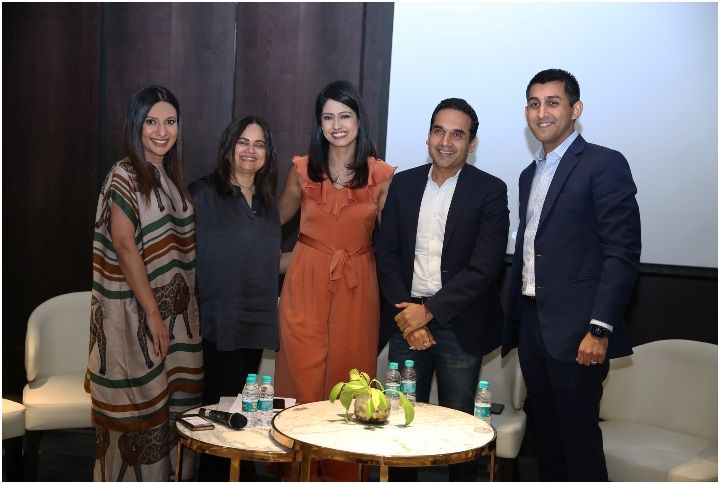
As adults, we spend most of our waking hours at work. With ever-increasing competition and the need for higher productivity, workplace environments have changed a lot over the last few years. Workplace conditions can have a significant impact on one’s mental well-being. Often factors like poor management practices, long or inflexible hours, lack of team spirit, bullying and workplace harassment create work-related stress. Moreover, this could lead to physical and mental health problems, alcohol or substance abuse, absenteeism and loss of productivity.
There’s a growing need for employers to take into account their employees’ mental health. Even more so, when we look at the direct correlation between the well-being of employees and the success of an organisation. To address this, Thrive Global recently brought together a group of thought leaders from across the city—our own Boss Lady Malini Agarwal, Amit Mookim, Marcus Ranney, and Priya Singh —to be a part of a panel moderated by Aabha Bakaya. They broke down how to thrive in today’s workplace and how to enable mental well-being within companies. Read on to see what was discussed!
Some Quick Statistics

- According to the World Health Organisation (WHO), one in every seven individuals experiences mental health issues in the workplace.
- Moreover, women are twice as likely to have mental health problems than men.
- The estimated cost to the global economy is USD 1 trillion per year in lost productivity due to mental health issues.
- Burnout was officially recognised as a medical condition by WHO in 2019.
- Closer home, according to studies, 42.5% of the employees in corporate India suffer from depression or anxiety.
- According to experts at Thrive, India would have the highest number of people dealing with these issues in 2020.
- After climate change and Brexit, mental health was the third most spoken topic in the UK in 2019.
Thriving Minds

Thrive Global‘s new program ‘Thriving Minds‘ is designed to address the rising challenges of mental health at the workplace. Thrive India has partnered with Stanford University, to launch this program for organisations and their employees everywhere. They’re facilitating research on understanding the brain and have identified eight biotypes, and some of the thoughts, behaviours, and emotions that are implicated in each. These include rumination, negative bias, emotional numbness, and cognitive fog amongst others.
How Stress Impacts The Body

There are two types of stress—good and bad. Physiologically, stress creates the fight or flight response which is basically the body getting a surge of adrenaline to get away from danger. This used to be a good thing when humans actually had to run away from let’s say, a predatory animal. In today’s times though, high-stress levels increase cortisol in the body, which leads to conditions like diabetes or cancer. Not all stress is bad though; good stress can help one be more driven in life. What we should try to do is increase our ability to move from bad to good stress.
Social Media’s Impact On The Mind

People on social media can be very aggressive or defensive. In the real world, we’d probably never behave the way we do online. Malini says,
With the constant need to be connected, we don’t allow ourselves that empty space that can help us decompress. A common problem while using social media is overthinking. Don’t take yourself too seriously when online.
Even though organisations commit to mental health, when faced with budgetary issues, this is mostly the first program to get cut. It sometimes becomes just a checkbox for companies. Employers should really question themselves on what it means to be happy or to lead a satisfying life, and work towards creating that environment.
What You Can Personally Do

It’s the small actions you can take every day that counts. There are many little actions that organisations can take to promote mental health in the workplace. Amit Mookim says,
Things like yoga sessions, football games, providing local foods in the cafeteria, fruit-infused drinking water, reminders in the form of announcements to have water…these little nudges can have a significant impact on the workplace culture.
Adopt micro-steps that are too small to fail; small actions you can take every day.
Some recommendations from the panel:
- Slow down.
- Pay attention to what you consume.
- Create a plan on healthy ways to recharge at the end of a workday, and work towards it.
- Unfollow accounts on social media that make you anxious or create FOMO and follow accounts that help you thrive.
- Get back to yourself, connect with yourself, and do the things you like.
- Maintain a gratitude journal and jot down three things you’re grateful for each day before going to bed.
- Try waking up early every day as it helps one approach the day differently.
- Start your day with something you do for yourself.
- Spend time with people each day that you’re not going to benefit from.
- Exercise. It has a way of connecting you to your body and is almost therapeutic.
- As a manager, build a true sense of team spirit, where people aren’t threatened by each other but collaborate to do their best.
- Build a circle of mentors you can count on for sound advice and guidance.
- Hold space for an employee if you feel they need help. Guide them to seek the help of an expert when you feel out of your depth.
- Try habit stacking to make habits work for you. It’s a Thrive-recommended way of adopting a micro-step and attaching it to what you do every day. For example, if you drink coffee at work in the morning, stack the habit of drinking a glass of water first. So, whenever you reach out for a cup of coffee, you’ll automatically hydrate yourself first.
Being happy won’t happen overnight, we need to build it slowly. It’s okay to be not okay, but if we’re prepared with a plan for things to do when we’re upset, we’d definitely be less stressed.
What do you do to de-stress after a hectic workday? Please share it with us in the comments below!
We often have such conversations on Malini’s Girl Tribe. To be a part of them, join the Tribe here.

